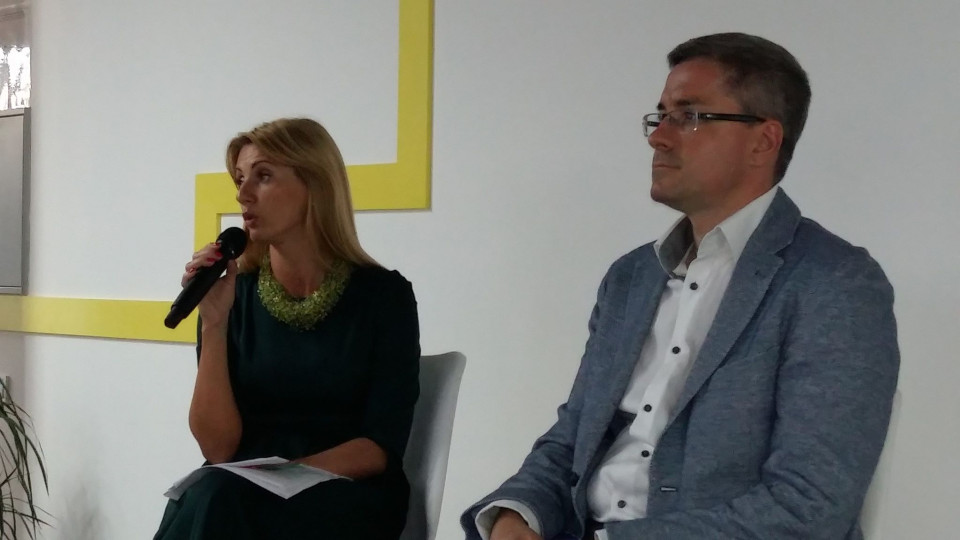Lack of private enforcement officers in Ukraine: Deputy Minister explains reasons
Out of the 25 candidate PEOs who have been trained and have completed the internship, twice as less candidates show up at the qualification examination.
Original in Ukrainian:Sudebno-Yuridicheskaia Gazeta

According to international experts, fair competition in the enforcement system, Ukraine needs up to 4 thousand PEOs – representatives of a new profession that has been set up a year ago alongside the state enforcement service. However, today their register counts only 129 people. The majority, some 50 people, are naturally concentrated in the capital while there are some districts having not a single PEO at all.
The Ministry of Justice, which is, in fact, the founding father and supervisor of the enforcement reform, also tries to understand the reasons for the lack of demand for the new profession.
Svitlana Hlushchenko, Deputy Minister for the Enfrocement Service, shared her ideas regarding this issue with Sudebno-Yuridicheskaia Gazeta.
She believes that the judicial reform cannot be comprehensive without the enforcement reform. No doubt, the setup of the private profession was an important step forward in the reform implementation. It had been prepared in advance: the Ministry of Justice had developed and approved all necessary by-laws, so that access to the profession is carried out in an appropriate manner.
In particular, the Qualification Commission of Private Enforcement Officers was established operating under the Ministry. It consists of four representatives from the Ministry of Justice, four PEOs, and one judge delegated by the Council of Judges of Ukraine. Over the year, the Qualification Commission sat 29 times. However, out of 431 initial selected candidate PEOs, who had completed the necessary training and internship, only 159 people showed up at the qualification examination, and 129 passed it successfully.
“In average, out of the 25 candidate PEOs, only 10 showed up at the qualification examination. Thus, only 37 percent of the initial number of candidates. It is probably ok, if remember that during the recent notary reform, only some 38% of candidates qualified for profession. However, the Ministry is still concerned with low attendance,” Svitlana Hlushchenko said.
The reasons are not fully clear, because from the point of view of the attractiveness of the profession, the work of these professionals is well-remunerated. The law provides that a PEO, in coordination with the claimant, is entitled to an additional fee and advanced payment if he guarantees the proper timing and quality of the achievement of the result.
Public confidence in the new profession after a year in place, is also quite high. This is evidenced by statistics: 85 percent of respondents, who addressed to PEOs, have been satisfied with their performance. The percentage of successful debt collection also speaks in favor of the private limb of the profession. For instance, 1.4 million writs of execution were submitted to the state enforcement service, 500 thousand out of which were actually executed (35.7%). While PEOs received 14 thousand writs of execution, and 58% of them were actually executed. Whether the three-level qualification examination is complex and insurmountable? After all, 129 acting PEOs have already succeeded it, emphasizes Svitlana Hlushchenko.
“With purposes of eliminating any claim against the tests and the examination in general, we decided to remove from the list of questions for the qualification examination those that are no more relevant or are no longer in accordance with the amended legislation, as well as controversial or ambiguous questions. Feedback from the candidates who have already passed the examination sent to the email of the Qualification Commission”, said the Deputy Minister who also chairs the Qualification Commission of Private Enforcement Officers.
In addition, she believes that the Association of Private Enforcement Officers, as a self-governing professional association, a body that is called upon to ensure the operation and viability of the profession, should be more active in promoting the work of private enforcement officers, which will result in a greater number of potential candidates. “Thus, the operation of the PEO profession is the very first experience in Ukraine, and, there will clearly be issues for resolving or improvement,” concluded Svitlana Hlushchenko.